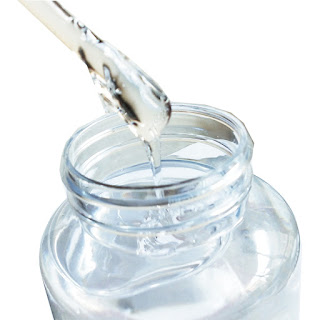Hydrogenated Polyisobutene; Acts as a Lubricant on Skin's Surface, Providing a Soft, Smooth Feel
Polyisobutene and hydrogenated polyisobutene are a class of
organic polymers widely used in cosmetic and personal care products.
Hydrogenated Polyisobutene acts as a lubricant on the skin's surface, which
gives the skin a soft and smooth appearance. There are many products in the
cosmetics industry that use hydrogenated polyisobutene as part of their
formulations. However, it has a few potential side effects which can harm the
body such as inflammation and skin irritation. In personal care and cosmetics
products, it is generally used in the composition of lipsticks and lip stick
products, they are also found in facial lip makeup, suntan lotion, and skin
care products as well. The chemical's properties enable these ingredients to
emulsify fats and oils without clogging the pores.
A cosmetic ingredient review on hydrogenated polyisobutene
will explain its properties and how it can be useful to the humans. The main
function of this ingredient is to make lips appear plumper and pouty. Lips are
a part of the facial skin, using this ingredient will help attain that sexy
look. A common property found in this ingredient is that it can have an
emollient effect. An emollient is a substance that can soften or make a
material softer than another one. Emollients are extensively used for cosmetics
because it helps to thicken the appearance of eyelashes per se, but it also
makes the eyelids appear more natural. The use of hydrogenated polyisobutene,
therefore, has the ability to create a thin layer of a liquid surface emollient
on the lips, which can make the lips more plump and pouty.
However, there is one major problem with the use of this
ingredient and that is, it may cause some harm to the lips. This skincare
ingredient functions as an emollient, which is a substance that softens and
lubricates the skin. And, it is also a humectant, which means it works to
reduce the appearance of wrinkles by attracting moisture to the skin. In
addition to being a moisturizer, an emollient will keep water from penetrating
the surface of the skin and keep dirt and grime from accumulating. Most
cosmetic manufacturers include emollients and humectants in their formulas, but
not all are doing a good job of it. For this reason, a good skincare product
should contain both types of ingredients.
Other than providing moisture, an emollient is also a great
hydration. When applied to the skin, emollients pull water into the cells to
replenish them. Moreover, because of its hydrophobic properties, hydrogenated
polyisobutene creates a thin layer of water that can lock in moisture, without
leaving behind a greasy or oily feeling. The versatility and durability of
polyisobutene make it an excellent choice for many applications. Its low cost,
electrical conductivity, high melting point, and inherent lubricity make it the
ideal polymer for thermal insulation, but the non-stick quality of polyimide
also makes it more desirable than some synthetic oils and waxes.
Let's take a closer look at the chemical composition of
polyisobutene. The main component is a mixture of two isopropyl alcohols, which
give it a citrus flavor and aroma. It also contains hydrogenated polyisobutene,
which gives it the ability to form layers of polymer chains. Each time a
molecule of hydrogenated polyisobutene is added, it yields more polymer chains
that can adhere to a number of surrounding structures. This ability to adhere
provides hydrogenated polyisobutene with the ability to form thin layers on the
surface of the skin, and in doing so, it serves as protection for these
molecules from environmental aggressors and from damaging oxygen in the skin. Hydrogenated
polyisobutene acts as a skin conditioning agent, emollient and a viscosity increasing
agent, non-aqueous in cosmetics and personal care products.


Comments
Post a Comment